As Nigeria drops to become the fourth biggest economy in Africa
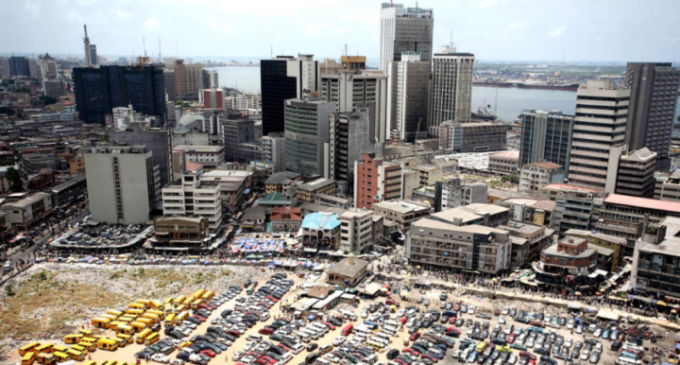
In 1999 when the Obasanjo-led administration took over the reins of power, Nigeria was the fourth biggest economy in Africa with a paltry GDP of just $58 billion and a GDP growth rate of 0.6%. To make matters worse, Nigeria had a national debt of $35 billion which was choking the country financially, and foreign reserves were less than $3 billion.
Without blaming the previous administrations for the pathetic state of the economy that they inherited, the duo of Obasanjo and Atiku set to work and within three years were able to achieve an economic growth rate of 15.8% which made Nigeria the fastest-growing economy in Africa and the second fastest growing in the world at the time.
They introduced several economic policies such as the privatization exercise which saved the country billions of Naira being used to maintain moribund enterprises while generating revenue for the government in the process. The deregulation of the telecoms industry saw our telecoms industry grow from less than 400,000 active subscribers to well over 200 million active telephone subscribers while creating a new digital economy.
They also embarked on banking reforms which accelerated the growth of the banking industry and increased the collective capital in the industry by over 200% within two years. The pension reforms created the pension industry which has now accumulated funds of over N18 trillion which represents the largest pool of funds in the Nigerian financial services industry today.
The cement industry policy was also implemented which made Nigeria become a net exporter of cement from a position when we were spending 3 billion dollars annually to import cement before the policy was implemented. They introduced a system of competitive bidding for oil blocks and terminated the system of discretionary allocation of oil blocks that was practiced under the military and they generated billions of dollars for the country in the process.
The local content policy in the oil industry was also introduced which ensured that up to 8 billion dollars’ worth of oil service contracts in the upstream sector of the oil industry were given to local companies and in the process local capacity was enhanced while billions of dollars were retained in the country amongst many other policies that helped stimulated economic growth.
To reduce graft, they built institutions to fight corruption such as the EFCC and ICPC while policies such as Due Process and monetization policy were introduced to reduce the cost of governance. Parastatals such as NAFDAC were empowered to fight the menace of fake drugs in the country and as a result of all these, they were able to block many leakages in the system and improve service delivery to the people.
Despite the relatively low oil price at the time they were also able to build the country’s foreign reserves to the highest level in our history and pay off most of our national debt while obtaining a huge discount on the debt for the country. As a result of this, the country’s credit ratings increased internationally and Nigerian banks were now able to access the international financial market for funds to boost their operations.
The Yar’adua/Jonathan administrations also built on this solid foundation and Jonathan introduced the Automotive Industry Policy which greatly boosted the automobile manufacturing sector in Nigeria while also introducing policies that brought an end to the dubious era of fertilizer subsidies while ensuring that farmers got fertilizers at lower prices and boosting agricultural production in the process.
As a result of these policies and growth-focused leadership, the Nigerian economy grew rapidly and by 2013 when the economy was rebased, it was confirmed that Nigeria had become the biggest economy in Africa by a very wide margin with our GDP reaching a peak of $568 billion by 2014. However, in 2014 as a result of falling oil prices and poor management of our reserves, the economic growth began to slow down.
In 2015, a new government came to power and one would have expected that given the economic challenges that the country was experiencing at the time, the president would have prioritized fixing the economy. Sadly the administration did not bother to appoint an economic adviser talkless of putting an economic team in place to tackle the challenges we were facing at the time. As a result of this, the economy plummeted into a recession by the third quarter of 2016.
During the second term of the Buhari administration, they finally decided to appoint an economic adviser to the president and put an economic team in place. However, the economic team was rendered redundant as the members of the team were not given cabinet positions where they could implement their policies and the president’s lack of interest in the economy did not help matters.
In 2023, the current president Bola Ahmed Tinubu resumed office after a very controversial electoral process. Unlike his predecessor who showed zero interest in issues about the economy, Tinubu took major decisions that were aimed at addressing certain economic problems within two months of being sworn in as president. The first was the announcement of the end of the oil subsidy regime on the day of his inauguration while a decision was taken to float the Naira a few weeks later.
While both policies are a step in the right direction, they were both hurriedly and poorly implemented without proper planning and as a result of this, the value of the Naira crashed while the inflation rate reached a record high thus pushing the economy into a tailspin.
As a result of the high inflation that occurred as a result of the government’s poor implementation of its economic policies, they have now resorted to a contractionary monetary policy to fight inflation at a time when they should be channeling more funds to the productive sector to grow the economy thus inhibiting the growth of the economy further. The truth is that if our economy is to grow, then the government must be very deliberate about it and take solid steps to grow the economy and implement policies that will support economic growth as was done during the Obasanjo administration when we experienced rapid economic growth.
It was thus as a result of the poor management of the economy by successive administrations in the past ten years that the size of our GDP plummeted from an all-time high of 568 billion dollars to the 252 billion dollars it is projected to be by the end of this year. The irony is that if the Nigerian economy had continued to grow at the average rate achieved between 1999 and 2014, Nigeria would have been a $1 trillion economy today and the average Nigerian would have been four times richer.
The current administration still has the time and the opportunity to reverse this downward trend and get things right but they have to get serious about fixing the fundamental issues inhibiting economic growth and not just applying cosmetic solutions to score political points.
Oshobi, a development economist, management consultant, and author writes from Lagos.
Views expressed by contributors are strictly personal and not of TheCable.


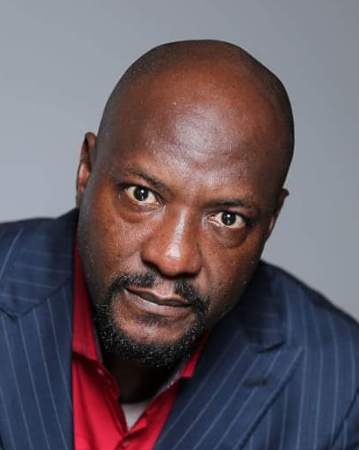




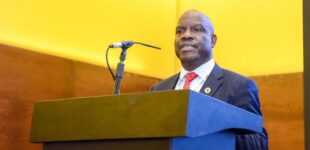
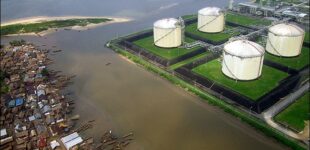
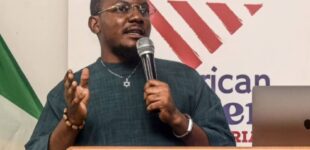

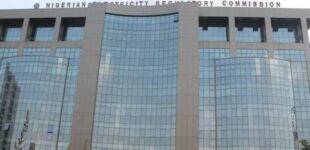

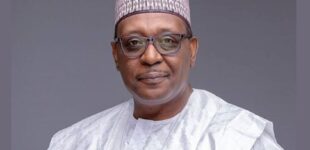


There are no comments at the moment, do you want to add one?
Write a comment